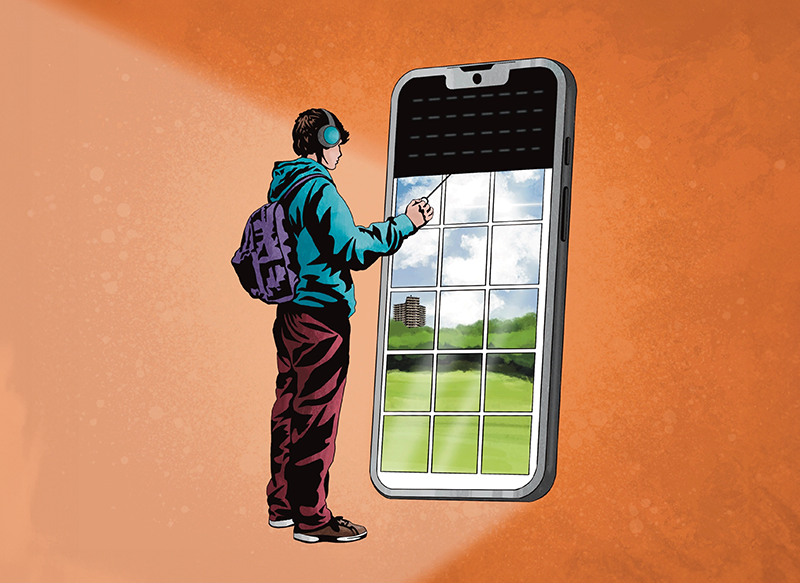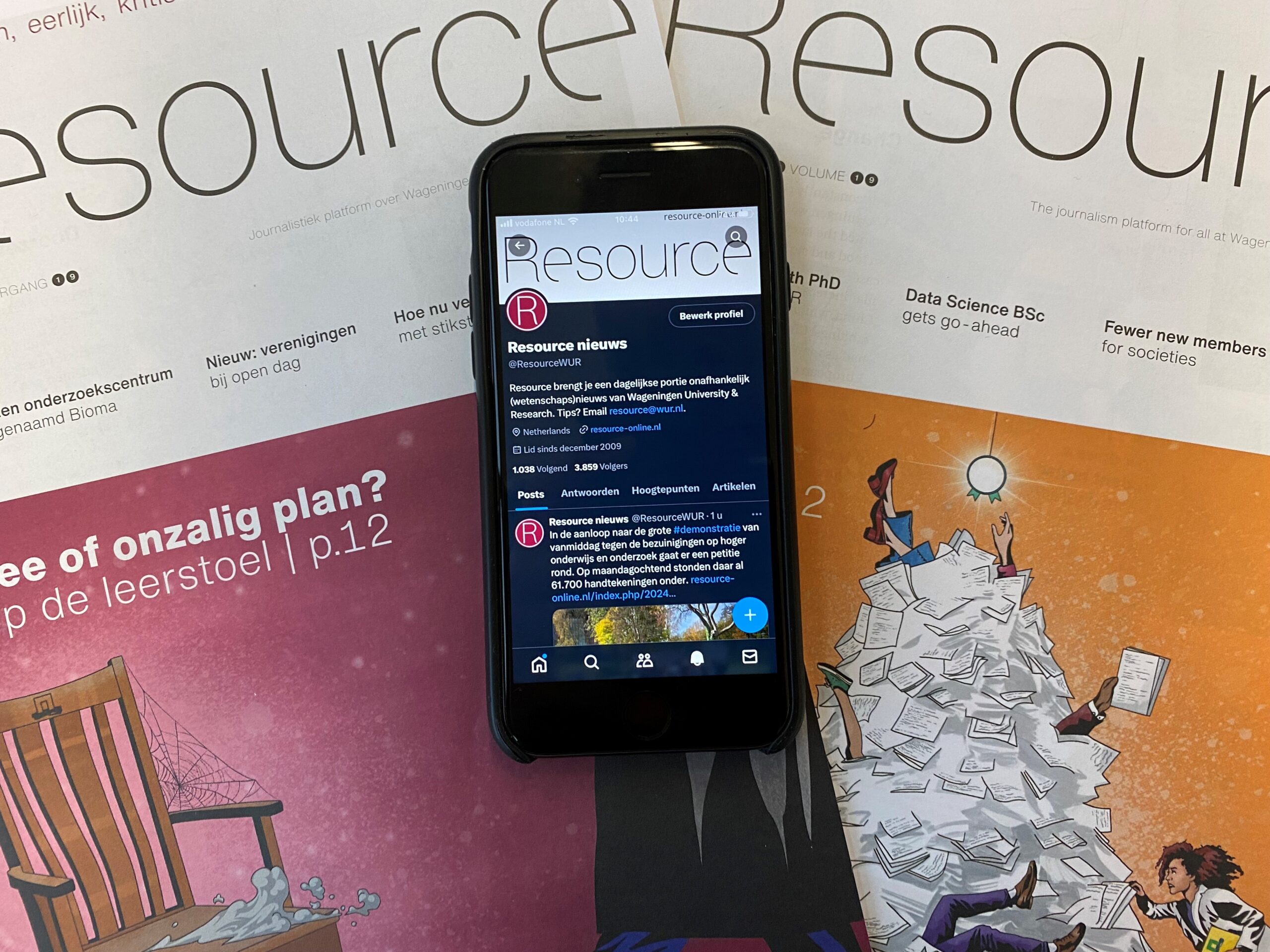Resource talked to three students who prefer to live ‘offline’.
‘Thanks to the Energizer, I got that endless scrolling out of my system’
Social media are addictive, says Master’s student of Plant Biotechnology Koen van Raaij (22). ‘I sometimes spent three hours watching video clips on social media nonstop. A waste of time of course. And I don’t think I get a lot out of it: it doesn’t make me any happier or anything.’ So last summer, Van Raaij bought an Energizer: a mobile phone on which you can use WhatsApp but nothing else. ‘So no social media, but you can still make plans with friends. That felt good right from the start. Thanks to the Energizer, I got the endless scrolling out of my system.’
And yet after six months, Van Raaij had had enough of the Energizer. ‘On that telephone you type in the old-fashioned way: to get a letter you’ve got to press the right number key up to three times. My friends found some of my messages extremely short and unclear. So in December I started using my old smartphone again.’ Since then, Van Raaij has been using apps to regulate his phone use. ‘I might set it so that I am only allowed to use Instagram once a week, for example. I look at Snapchat every other day on my laptop. The app doesn’t work nearly as well on that, so you are not tempted to stay on it for long.’ Now that summer’s coming, Van Raaij is considering switching back to his Energizer. ‘But it’s still a struggle, and I haven’t found the perfect solution.’
‘I dream of a world in which we take time for each other, look each other in the eye and listen’
If people want to reach Rémi Féraut (27), Bachelor’s student of Plant Sciences, they’re best off ringing or texting him. He does have a smartphone with WhatsApp, but there’s no sim card in it. ‘I can WhatsApp when I have Wi-Fi. But I leave my phone at home as much as possible, because all those group WhatsApp messages and notifications are terribly distracting.’
The only social media Féraut uses is LinkedIn. ‘I started planting a food forest in France a couple of years ago. I stay in touch with agroforestry networks in the Netherlands and France through LinkedIn. Beyond that, I tried Instagram but I didn’t find it very inspiring so I soon stopped using it.’
Not long ago someone forwarded a post from Féraut’s sister to him. ‘That summed up the paradox of our times: we can communicate more easily than ever, but the more media we have, the less we truly communicate with each other. I saw smartphones arrive on the scene as a teenager, and suddenly people were on their mobiles during meals and at parties.’ Féraut dreams of a world with more genuine communication. ‘In which we take time for each other, look each other in the eye, and listen to each other.’
‘I might have missed one or two parties, but never those of close friends’
Braden Tredoux (24), a Bachelor’s student of Environmental Sciences from South Africa never even started using social media. ‘When people around me started using Facebook, it seemed like a waste of time to me. A bit later, Instagram became a thing, but I wasn’t interested in that either. I thought the process involved was stupid. If I’m on a beautiful beach, I’d rather go swimming than do a photo shoot. And the competition for likes and friends seemed unnecessarily stressful to me.’
Tredoux doesn’t feel he misses out on much. ‘At one point, birthday parties and other gatherings were mainly organized through Facebook. I might have missed one of two, but never those of close friends. If people want me to come, they know how to reach me.’ There are times when Tredoux would like an account, though. ‘To stay more in touch with what friends abroad are up to. On the other hand: catching up by phone is fantastic too, of course.’
Social media: good or bad?
WUR professor Sanne Kruikemeier is doing research on the role of digital and social media in society. ‘When we talk about social media, we often mean young people who are on TikTok all day, influencers who spread disinformation, or young girls and boys who pick up unrealistic ideas about how they are supposed to look. But using social media can have positive effects too, like keeping in touch with other people and finding inspiration.’
The question of whether social media are good or bad for us is too simplistic, says Kruikemeier. ‘The reality is nuanced. For some people it can be a good idea to avoid social media for a while. On the other hand, avoiding them completely can mean you lose touch with your friends and with what’s going on. So going offline can have its disadvantages too.’
One of Kruikemeier’s PhD students is doing research on news avoidance. ‘You often see that people who avoid news feel better at first, but that feeling can lessen again as time goes by. There might be a similar effect with avoiding social media.’
Just like news, social media will continue to be part of life for most people, says Kruikemeier. ‘Try to use it for things it is useful for. And if you notice that it depresses or overwhelms you, regulate your use of it. Exactly the same as with alcohol or sweets, really: if social media affect you negatively, use them in moderation.’

 Illustration Valerie Geelen
Illustration Valerie Geelen ![[Seriously?] Research jobs to fall by a quarter due to more personal research](https://www.resource-online.nl/app/uploads/2025/07/WEB_DeNeus.png)

